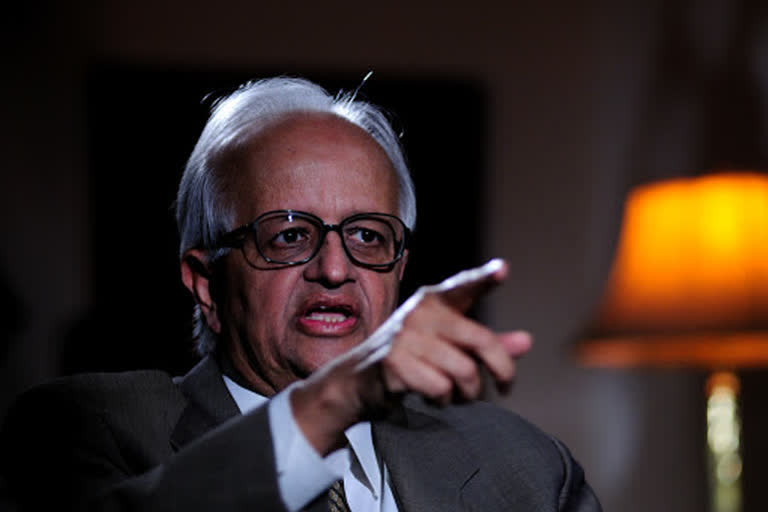New Delhi: Former Reserve Bank Governor Bimal Jalan on Thursday described the initiatives taken by the government to mitigate the impact of COVID-19 as "very positive" and hoped that these would help in containing the decline in growth.
He further said that unlike in 1991, when the country faced a balance of payments crisis, today India has resources as well as forex reserves to deal with any eventuality.
"All the measures announced by her (Finance Minister Nirmala Sitharaman) are very positive.
"But as you have rightly said these are all supply side, not demand side. In terms of the economy, one does not expect higher fiscal deficit to lead to a higher economic growth in macroeconomic sense," Jalan told PTI in an interview.
Earlier this month, the government announced a Rs 20.97 lakh crore economic package, which included RBI's Rs 8.01 lakh crore worth of liquidity measures.
Sitharaman had unveiled the package in five tranches, which included Rs 3.70 lakh crore support for MSMEs,Rs 75,000 crore for NBFCs and Rs 90,000 crore for power distribution companies, free foodgrains to migrant workers, increased allocation for MGNREGS, tax relief to certain sections and Rs 15,000 crore allocated to the healthcare sector.
On criticism that India's economic package was too less compared to packages unveiled by countries like the US and UK, he said developed and developing nations are very different.
"If you look up at developed countries, I mean their rate of growth is say 2 per cent or 3 per cent and they have a large per capita income and so on.
Read more:FM launches instant allotment of e-PAN based on Aadhaar
"For developing countries' point of view, you want a high rate of growth, say at least 6 per cent or 7 per cent, and you also want inflation to be under control so that per capita income increases," Jalan noted.
Asked if India's present economic crisis is as big as the 1991 balance of payment crisis, he said, "The 1991 economic crisis was very different, we had a balance of payment problem of a very deep kind. We did not have sufficient forex reserves."
"Today we have resources and high forex reserves," Jalan, also a former member of Parliament, pointed out.
